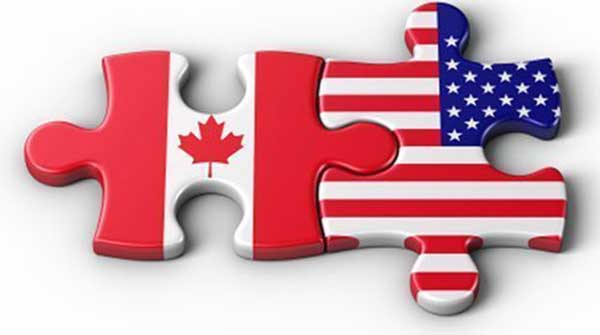
The United States government has a clear definition for whether or not someone is living abroad. Living outside the U.S. means you are not in the 50 states, Washington D.C., Puerto Rico, U.S. Virgin Islands, Guam, Northern Mariana Islands, or American Samoa. So, even though Canada is such a friendly neighbor that it feels like part of the U.S. family, if you live in Canada, you are living outside of the U.S.
If you are a U.S. citizen and you meet the criteria for living abroad, you should know that government benefits work a bit differently if you reside in another country. Here are some of the basics for the most frequently asked questions about getting government benefits while living abroad.
Social Security Disability Insurance
More than 500,000 people who live outside of the United States receive Social Security benefits. If you are entitled to Social Security Disability Insurance payments, you can still receive your benefits for as long as you are eligible, but it may require some extra planning on your part.
The first thing to know is that setting up a direct deposit bank account will be hugely helpful to you. It is the best way to make sure that you receive your payment, and that you receive it on time.
The second thing you need to know is that where you live matters, potentially a lot. If you live in a country in which you have dual citizenship and it is a country that the U.S. has listed as an “allowed country,” like Canada, you have a greater assurance that your benefits will be paid without trouble. The list of allowed countries changes from time to time, so make sure to check it periodically.
If you reside in a country that the United States Treasury has listed as a sanctioned country, you may still be entitled to receive SSDI, but actually getting the money may be quite difficult. Examples of sanctioned countries the Social Security Administration cannot send money to are North Korea, Cuba, Kazakhstan, and Belarus. If you live in a banned country, your money cannot be forwarded to you in that country. Also, you are the only person allowed to receive your money, not even someone you send on your behalf. This means that you will probably need to travel outside your country of residence frequently to get your payments.
Veterans Benefits
If you earned Veterans’ benefits, you will be entitled to those benefits while living abroad. VA benefits such as disability and pension payments, healthcare, educational assistance, and burial assistance are included.
Set up a bank account with direct deposit to receive your payments. Fortunately, the U.S. Treasury, who issues your payments, does not charge a currency conversion fee for international payments to Veterans.
Health care is available via the VA Foreign Medical Program. Getting this healthcare may be slightly more complicated than getting treated in the United States, so know what you are likely to need and how to get it before you go.
The Veterans Administration provides a path to obtain education benefits as well. Veterans who are entitled to education benefits should check the Foreign School information page on the VA website to look for programs the VA has approved to be part of your education benefits. Generally, the VA approves programs in non-U.S. countries when their degrees are similar to those from accredited U.S. schools. As such, if you are looking at attending school as a Vet in Canada, there is a good change that your VA benefits will apply.
If you are a Veteran who is entitled to help with adaptive housing, that benefit carries over into your residence in other countries as well. Know that you will need to prove that you have a substantial ownership interest in the home and that you need prior approval of the VA for the modifications you would like them to pay for.
Medicare
In general Medicare does not cover health services outside of the United States. You are able to enroll in Medicare while residing in another country, but there are very few instances in which you will be able to use it.
Here are the three ways you can use Medicare coverage in another country, and they are all most relevant to Canada. If you are in the United States, have a medical emergency, and the nearest hospital is in another country, you may go to that hospital and be covered. You live in the U.S., but the foreign hospital is the closest one that can treat you, Medicare will cover the treatments that Medicare would cover if it was a U.S. hospital. If you are in transit between the lower 48 states and Alaska and need medical assistance without delay, and the medical facility in Canada is the closest one, Medicare will cover that treatment.
This content is a joint venture between our publication and our partner. We do not endorse any product or service in the article.

